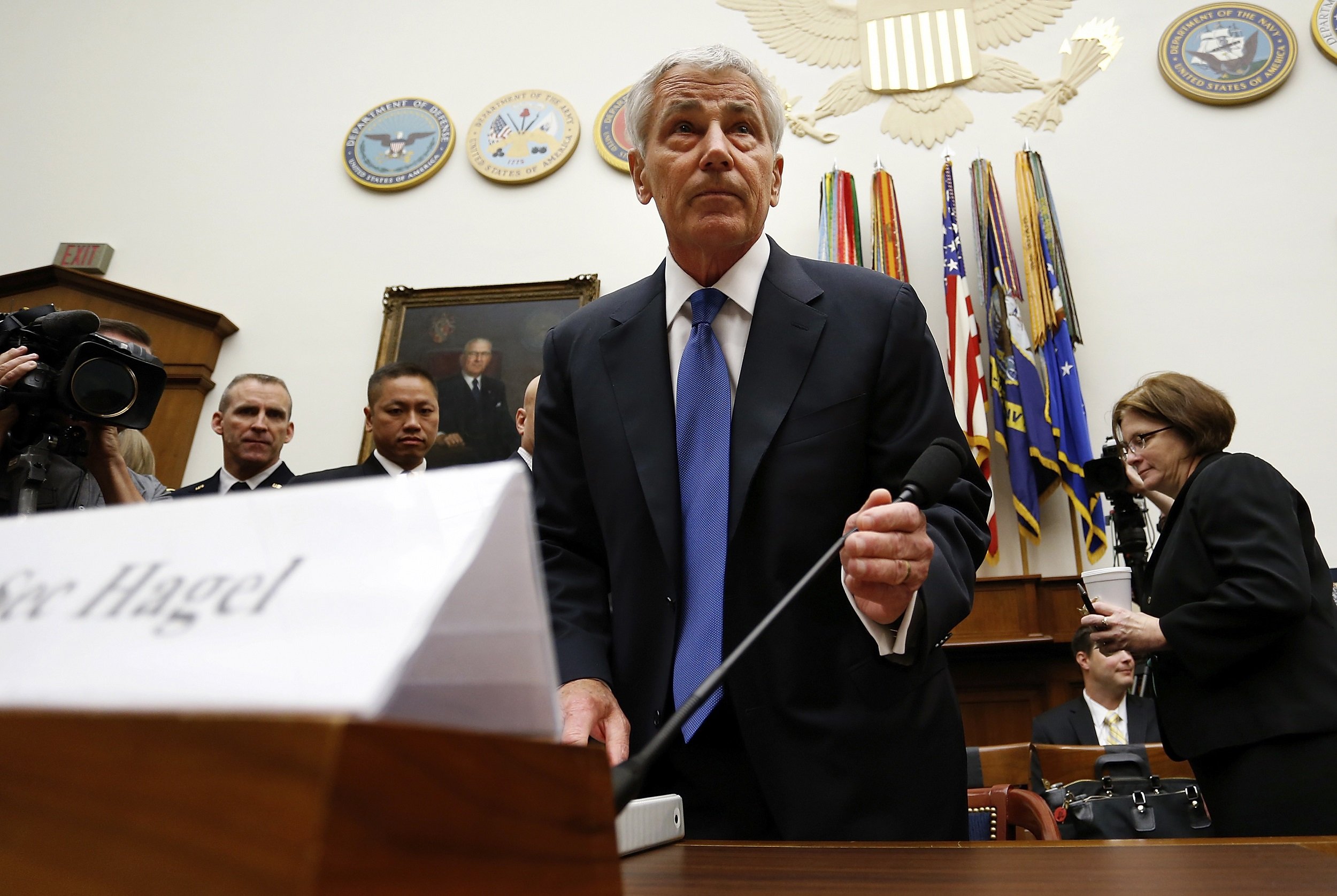
WASHINGTON (Reuters) - Defense Secretary Chuck Hagel on Wednesday defended the U.S. decision to trade five Taliban leaders at Guantanamo for war prisoner Bowe Bergdahl, insisting it was the right move but admitting failure to tell lawmakers hurt trust with Congress.
Hagel told the House of Representatives Armed Services Committee the administration felt a growing sense of urgency about freeing Bergdahl in recent weeks due to concerns that his health was deteriorating and warnings from Qatari intermediaries that "time was not on our side."
"We grew increasingly concerned that any delay, or any leaks, could derail the deal and further endanger Sergeant Bergdahl," Hagel told the sometimes contentious hearing. "We were told by Qataris that a leak would end the negotiations for Bergdahl's release."
Lawmakers have sharply criticized the Obama administration for freeing the five Taliban leaders held at Guantanamo prison without giving them 30 days notice as required by law. Some have charged that the administration violated its policy of not negotiating with terrorists.
The initial euphoria over Bergdahl's release swiftly ebbed, with some of his former comrades charging that he had deserted before his capture and claiming that the search for him had jeopardized the lives of other soldiers.
Hagel said he had been "offended and disappointed" about the treatment of Bergdahl and his family by some people. He said a comprehensive U.S. Army review would make a determine about the legal issues surrounding Bergdahl's disappearance from his outpost in Afghanistan and later capture.
"His conduct will be judged on facts, not hearsay, posturing, charges or innuendo," Hagel said.
The Pentagon chief rejected the notion the administration violated its policy of not negotiating with terrorists.
"Because Bergdahl was a detained combatant being held by an enemy force, and not a hostage, it (the exchange) was fully consistent with our long-standing policy not to offer concessions to hostage-takers," he said.
Efforts to secure Bergdahl's release began to quicken in January after the administration received a "proof of life" video from the Taliban through the Qatari intermediaries.
"It was disturbing," Hagel said. "It showed a deterioration in his physical appearance and mental state compared to previous videos."
Feeling a greater sense of urgency because of the video and a break-off in indirect talks, the administration negotiated a memorandum of understanding in early May with Qatar detailing the security measures that would be enforced if any Taliban detainees were transferred to their custody, he said.
After the memo was signed, U.S. officials received a warning from Qatari intermediaries that "time was not on our side," Hagel said. They moved forward with indirect talks on the mechanism for the prisoner swap, reaching a deal on May 27.
"We were told by the Qataris that a leak would end the negotiations for Bergdahl's release," Hagel said. "We also knew that he would be extremely vulnerable during any movement, and our military personnel conducting the hand-off would be exposed to a possible ambush or other deadly scenarios."
The U.S. defense chief said the swap was set in motion just four days later. He said U.S. forces did not know the general area of the handoff until 24 hours beforehand and did not have the precise location until one hour before the swap.
Hagel said he valued the Pentagon's partnership with Congress and knew "that trust has been broken" by the failure to notify Congress.
"We made the right decision, and we did it for the right reasons: to bring home one of our own people," Hagel said. "America does not leave its soldiers behind."
Uncommon Knowledge
Newsweek is committed to challenging conventional wisdom and finding connections in the search for common ground.
Newsweek is committed to challenging conventional wisdom and finding connections in the search for common ground.
About the writer
To read how Newsweek uses AI as a newsroom tool, Click here.





